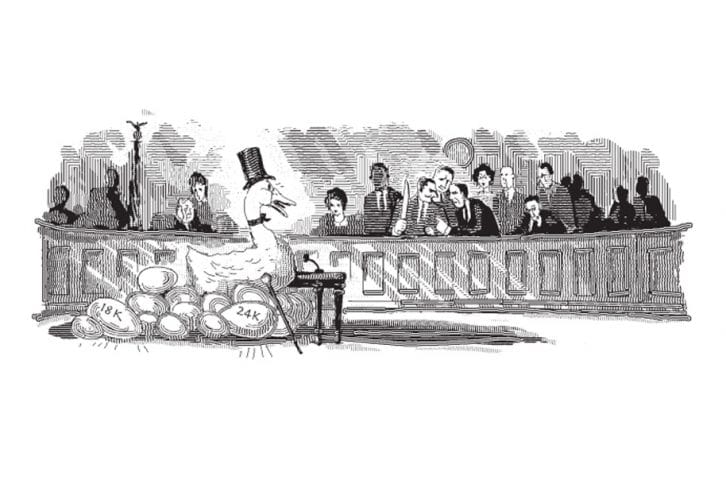Books Reviewed
A review of The Founding Fathers Reconsidered , by R.B. Bernstein
, by R.B. Bernstein
In his new book, R.B. Bernstein, the author or editor of more than a dozen books on American constitutional history, offers a "distilled introduction" to the founding, drawing on the best historical literature and a smattering of political theory from the last half-century.
Easily digested in a few sittings, The Founding Fathers Reconsidered is sprinkled with wonderful tidbits for both the seasoned scholar and the general reader. For example, Bernstein encourages readers to reflect on the power of firsts when he argues that Thomas Jefferson was "the first man voluntarily to assume the role of an ex-president and to work to shape that role in American public life." George Washington had achieved near-demigod status even before he assumed the presidency (in a sense, he always stood apart from, and above, his peers), and John Adams retreated into private life after his embittering defeat in 1800. But Jefferson didn't let a small thing like retirement derail his interest in politics and enlightenment; he was a prolific letter-writer, encouraging and pursuing political and intellectual projects at every turn, including his crowning achievement, the founding of the University of Virginia. The conduct of future "discontented ghosts," as Hamilton in The Federalist called ex-presidents, might have been much different without Jefferson's public-spirited example.
One virtue of the book is its balance. Bernstein navigates contentious issues with consummate sobriety, neither giving in to caricature nor indulging fashionable academic opinion. Despite that, the reader craves occasionally some informed choosing of sides. This is especially true in the section on original intent, where Bernstein could have offered his considered judgment, as a law professor and historian, on the rich ongoing debate between originalists and living constitutionalists. Instead, he merely summarizes the disagreement, and inadequately at that, given his gross simplification of the originalist side. He distinguishes "original intent," "original understanding," and "original meaning" at the beginning of his discussion, but soon after collapses them all into "original intent," as if the vigorous debate—especially within the originalist camp—of the last two decades has done nothing to clarify, enrich, or build upon Edwin Meese's original call in 1985 for a "jurisprudence of original intent."
These criticisms aside, this is a sparkling book. The endnotes alone—the product of decades of serious study and thoughtful reflection—are worth the volume's price. Scholars and thoughtful lay readers alike will find The Founding Fathers Reconsidered a rich and rewarding work.


